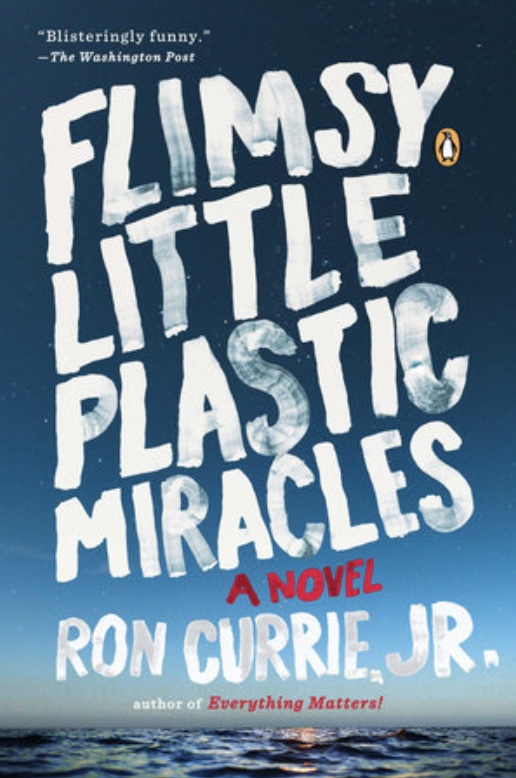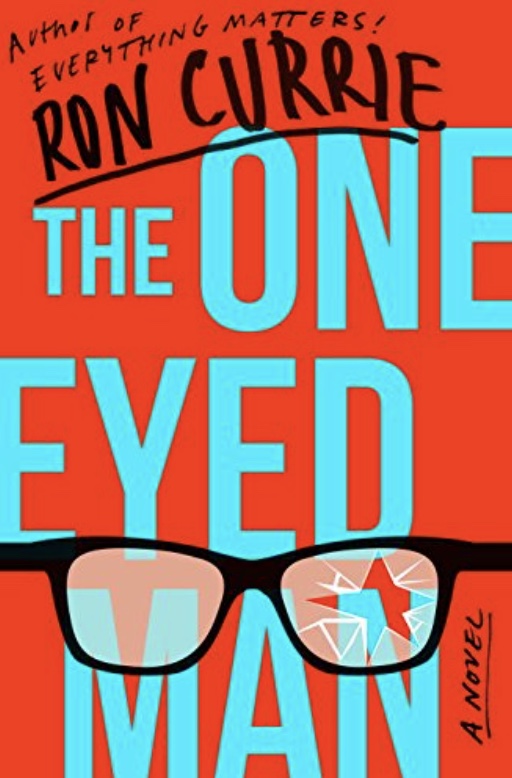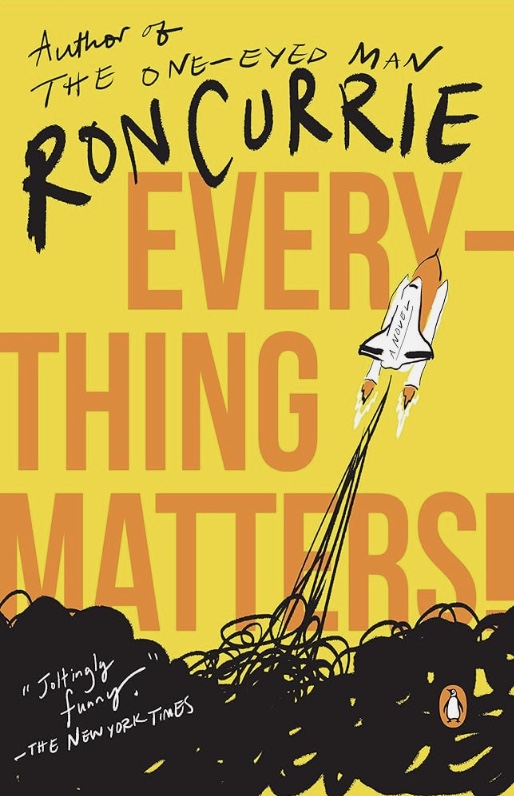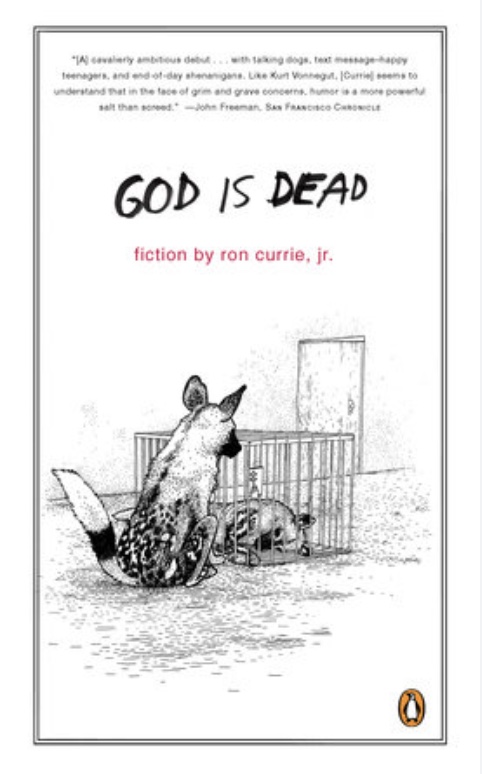Ignoring All Axioms: A Conversation With Ron Currie
- breakwaterreview
- Nov 26, 2023
- 4 min read
2023 Judge of Breakwater Review’s Fiction Contest
By Jen Susca

When asked what he does when he isn’t writing, author Ron Currie recalls an anecdote about Mary Oliver: “Someone asked her what she did that afternoon, and she responded, ‘I sat looking out of my hotel room window, feeling melancholy.’ That’s what I spend most of my time doing, one way or another.”
Portland, Maine, Ron’s hometown, isn’t such a bad place for that. The bustling coastal city has become widely known as a cultural hub for artistic types, earning comparisons to Austin, Texas, and the Portland of the opposite coast. “It’s almost as filthy with writers as Brooklyn,” he jokes. “A pretty convivial bunch who, when we get together, usually talk about any and everything other than writing.”
Along with writing professionally, Ron also teaches in the University of Southern Maine Stonecoast MFA program, based in Portland. The creative city is an extremely apt home for someone like Ron who is and always has been a writer—not by choice, but because he couldn’t see himself being anything else.
To date, Ron has won the New York Public Library’s Young Lions Award, the Addison M. Metcalf Award from the American Academy of Arts and Letters, the Alex Award from the American Library Association, and the Pushcart Prize. His short fiction and nonfiction have received recognition in the Best American Sportswriting, Best American Essays, and Best American Nonrequired Reading anthologies.
Ron’s impressive list of accolades and countless publications are a testament to his diligence as a lifelong writer. Some of his earliest forays into the craft included writing in all forms—even comic books (despite professing to have no aptitude for visual art whatsoever), songs, and even a stage sequel to “Charlotte’s Web” that was produced in elementary school.
“Because I only really have one thing I’m good at, I try to do it in as many ways as possible,” he says of his career as a writer. First and foremost, he considers himself a novelist. To date, he has published three novels, Everything Matters, Flimsy Little Plastic Miracles, The One-Eyed Man, and the short story collection God is Dead. His latest project is a trilogy about a small-time Franco-American crime family in Maine, slated to be published by Putnam next year.
As a screenwriter, he worked most recently on the Apple TV+ series Extrapolations and has developed projects with AMC Studios, Amblin Television, and ITV America, with more projects in the works. Ron doesn’t pigeonhole himself into just writing fiction though. He has expanded into writing essays, articles, op-eds, and personal essays, which have been published in the New York Times, the Believer, the Chicago Tribune, among other renowned publications.
“It’s the same thing I’m always looking for in a story: the unmistakable sense that I have been witness to a startling and true perspective on what it means to be human and alive.”
The writing process across different forms isn’t a one-size-fits-all approach, for Ron. When it comes to writing novels, he professes to “just winging it,” which inevitably results in “lots of bad prose and dead ends.” Conversely, writing screenplays typically require more planning at the outset. When approaching short nonfiction, personal essays, op-eds, and the like, “I usually know a particular thing I want to write about, and I kind of palpate the subject on the page, trying to find a way into it that feels authentic and exciting. Once I find the shape of the thing, the writing usually comes pretty easily after that.”
Still, no project exists in a vacuum, and as any writer knows, the process of editing, receiving criticism, and rejoicing in positive feedback is requisite. “If I disagree with an editorial suggestion—or dictate—I usually have to let it cool a bit in order to determine if my resistance is just ego or a valid response to bad editing.” But as a writer, he’s learned to be an advocate for his work and recognize when to raise his hand. He recalls a recent case when an editor wanted to cut what he believed was the best line in an essay. After pushing back, the line stayed in, and when it was published another writer wrote him a note singling out that line as the one he appreciated the most. “The lessons never stop.”
The same applies to criticism. “You never know what’s going to sting the most, and it often isn’t the thing you would expect,” says Ron. “After almost twenty years doing this, I’ve come to see criticism as just another part of the gig. I don’t pay much attention to it.” While being receptive to feedback and open to criticism (hopefully constructive), there is a certain degree of tenacity that is synonymous with being a successful writer. “Ignore all axioms,” Ron advises aspiring writers. “If someone in an apparent position of authority or expertise tells you you can’t do something, that’s probably the thing you should be doing.”
Ron’s dexterity in producing a plethora of content is no accident. Writer’s block? “Doesn’t exist. Do or do not, just like Yoda said.” Keep writing, keep revising, and keep yourself open to inspiration. The writing process never stops, and the idea that comes while you’re looking out the window might be your next great story. As the judge of this year’s Breakwater Review Fiction Contest, Ron has a keen eye for this feeling. “It’s the same thing I’m always looking for in a story: the unmistakable sense that I have been witness to a startling and true perspective on what it means to be human and alive.”
Jen Susca is a first-year MFA student at UMass Boston and the co-editor of Breakwater Review. Her short stories have appeared in Grattan Street Press, Drunk Monkeys, and Talon Review, among other publications.








Great interview, but if I'm being honest felt more like 'why I'm still a Calvinist' than 'Christian'. I respect that Kristen's faith tradition is important to her, and she can obviously share to the level she feels comfortable with and no more, but this was a very intellectual conversation. I'd have appreciated hearing more about Kristen's personal faith in Jesus Himself and why that is not shaken despite the attacks she's endured. premium raf b3 bomber jacket mens
We don’t just sell jackets. We create wardrobe essentials that elevate your everyday look. Sheepskin Leather Bomber Jackets
"Ignoring All Axioms: A Conversation With Ron Currie" dives into the mind of the acclaimed author as he challenges conventional wisdom and explores the deeper truths of storytelling. In this thought-provoking dialogue, Currie discusses how questioning long-held beliefs and literary traditions opens doors to new perspectives and authentic narratives. Shamier Anderson Invasion S02 Jacket With his sharp wit and fearless approach, he reflects on the role of fiction in a world saturated with noise, the responsibility of writers to provoke thought, and the beauty of embracing uncertainty. This conversation is not just about literature—it’s about life, creativity, and the courage to ignore the rules in search of something more meaningful.
If you want to go faster in Speed Stars Unblocked, you need to master the sweet spot between too slow and too fast. If you tap unevenly, your runner will lose balance. Keep your hands steady and sync your taps!
A pleasant and fulfilling experience requires open communication and permission from both parties. Before beginning your chosen scenario, discuss boundaries, desires, and comfort levels with your Call Girl Service in Delhi to ensure that both couples are on the same page.